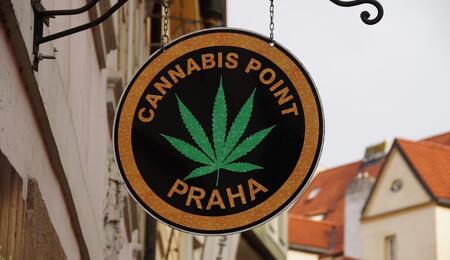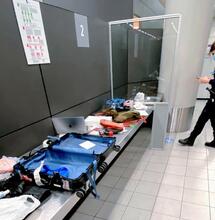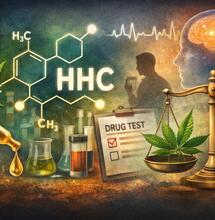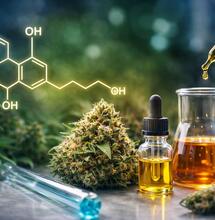Czech Lawmakers Approve Ban on HHC

The Czech government has moved to place HHC on the list of banned addictive substances. The measure was prompted by an increased number of intoxication cases among young people in the country. While the ban is only temporary, drug policy experts as well as HHC vendors believe that this is a big mistake.
Around 170 children and young people have been hospitalized in Czechia in the recent period because of overdosing from candy infused with the semi-synthetic cannabinoid HHC. The country’s authorities decided to ban HHC products to address the problem, according to reports in Czech media.
HHC products such as vapes, oils and sweets, have been free to use and purchase in the landlocked European country. The popularity of these products has exploded in the last couple of years, notably among adolescents who can easily get them from vending machines.
A Ban on HHC Can Only Make Things Worse
Drug policy experts in Czechia do not believe that a crackdown on HHC or any other synthetically devised cannabinoids is an effective solution, however. Neither do vendors who have huge stockpiles of HHC products, and have already placed those items on discounts before the new measure takes effect sometime in March.
Vendors further point out that a complete ban would also affect those who seek HHC to treat conditions such as chronic pain, as pharmaceutical drugs do not work for them. These users may have to turn to the black market to look for medicines.
Before approving the ban, which also applies for HHC-O and THC-P, Czech lawmakers failed to agree on simply withdrawing all of these products from sales.
Czechia’s Agriculture Minister Marek Výborný confirmed the decision to ban HHC on February 14. He also said that the measure is temporary and will have to be reviewed with the European Commission first, which may take around three weeks.
Penalties for Possession of HHC Products
Once the prohibitive measure is enacted, distribution and possession of even small amounts of HHC will be punishable. The simple possession of products containing HHC will be considered an offence, which carries a fine of up to CZK 15,000 (approximately US$630). Possession of larger quantities can lead to imprisonment.
The only exemption from the ban remains industrial hemp which can contain trace amounts of HHC.
The ban itself will end on 1 January 2025, when Czechia is expected to amend its national law on addictive substances. At that time, it’s possible the country legalizes the recreational use of cannabis and launches a regulated market.
HHC Producers Can Easily Find Way Round the Law
One of the ministers in the Czech parliament, Ivan Bartoš, who represents the pro-legalization Pirates party, pointed out that a similar ban in France has led to the creation of new “legal” synthetic cannabis derivatives.
Indeed, it’s a fact that there are dozens of similar psychoactive cannabinoids. HHC sellers may easily switch to other options. An example is HHC-P, a derivative of HHC that can be ten times more potent than HHC. Producers may as well begin to offer substances such as THC-B and THC-H, also strong and potentially dangerous. The current proposal from the Czech lawmakers does not account for any of these other cannabinoids.
Also read on Soft Secrets:











